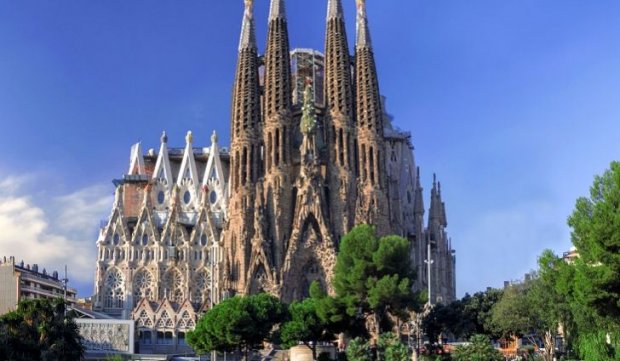Religion in Spain

As with many countries nowadays, religion in Spain is a somewhat controversial topic. With a growing mix of multi-culturalism it is clear to see that Spain is moving away from the Roman Catholic base of recent centuries and instead merging into a more secularist society with religion becoming less and less important as years go by; A large contrast to the Reconquista and other various wars that were fought solely in the name of religion. Yet in a survey of July 2009, it became clear that 73% of the population do still consider themselves Roman Catholic, whilst the second largest domination is that of no religion at 22%; whilst 2% defining themselves as other faith, primarily that of Islam.
The history of Spain as regards religion is lively to say the least. During the Roman Empire, mainland Spain was first considered Christian, yet by the seventh century, the invasion by an Arab army led to Islamic rule, but of a more understanding nature, with Christian and Jewish subjects still allowed a role of power, and indeed Muslim rule before 1055 is considered amongst the easiest for Jews within history as their way of life flourished. On the borders, Christian rule dominated, its importance being seen in the foundation of the pilgrimage centre of Santiago de Compostela.
The gradual regaining of Spain by Christian forces is an important stage during this country’s vibrant history, as it allowed the reassertion of European rule over this Iberian land. This was further encouraged by the work of King Ferdinand and Queen Isabella who worked to unite Spain under Catholicism, and in years to come this was transferred abroad upon the conquest of the new world by Christopher Columbus. It is significant to note however that Spanish rulers asserted their right to independence from Rome as well as Papal influence without the permission of the state.
The Franco era was also hugely significant in the perception of religion within Spain, as it focussed on a much more traditional country in many ways. The primary focus of this regime as regards religion was on the reassertion of Catholicism and the centrality of the church in everyday life, which can be clearly seen through the fact that Catholicism was the only religion allowed legal status at the time. Furthermore the government effectively funded the Church, and passed laws in support of its teachings, such as against divorce, abortion, civil marriages and the use of contraceptives. Catholic religious education also became compulsory throughout school, showing its importance at a baser level.
Following Franco’s death, the Spanish constitution was re-written, with the primary aim of separating church and state, and indeed in the first draft, the church was not mentioned at all, causing a large amount of controversy considering its previous state. Because of this, religion appeared as article 16, in which the state guaranteed each citizen the right to religious liberty, however failed to take into account the clear fact that Roman Catholicism is the most widely practised religion, making it somewhat contentious as many who feel it should be recognised as such. Spain is now officially seen as ‘non-confessional state’ as opposed to the clear separations and principles of Laicité as seen in France and Mexico.
In contemporary Spain, religion is clearly becoming less and less important. Of those who in a recent survey described themselves as religious, 58% went to on to state that they hardly ever go to church, whilst now only 15% attend services once or more times a week. For many young people, teachings such as that regarding contraception are of little importance and often ignored. Furthermore, one can see the waning influence of the church in Spain through the decreasing importance of groups such as Opus Dei. This primarily Spanish group grew in influence particularly during the Franco era because of the emphasis on tradition and church, as many leading members occupied key positions within the government, however the waning importance of the Church has led to diminished importance for this group as it has now simply become one of many similar groups competing for attention in society without its governmental influence. However, politically the church is seen to be losing its neutrality in modern day Spain, as more often that not it is linked with the Partido Popular, demonstrating its more conservative background, with the ultimate consequence of alienating worshippers.
Spanish Vocabulary:
- la iglesia católica – catholic church
- la política - politics
- polémico - contentious
- la influencia - influence
- la religión - religion
- el Islam - islam
- los judíos - jews
- las tradiciones - traditions
- asistir - attend
- la vida cotidiana – daily life
Source: www.donquijote.co.uk
Related posts:








